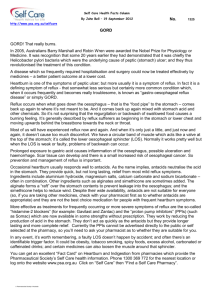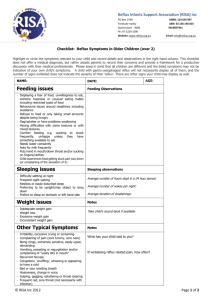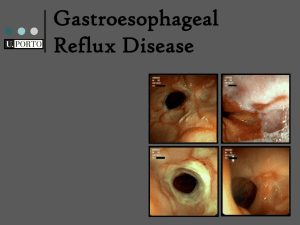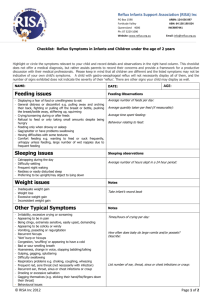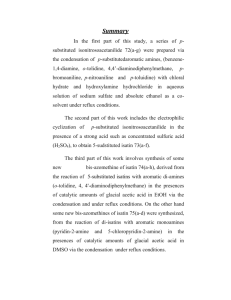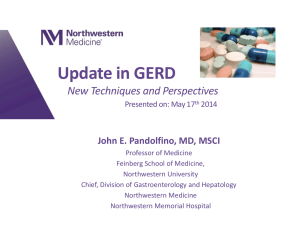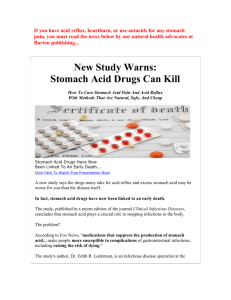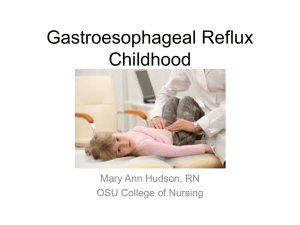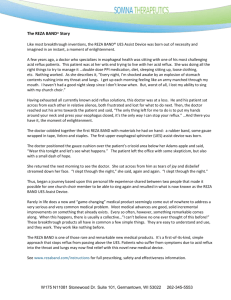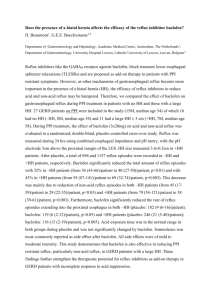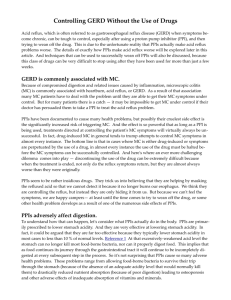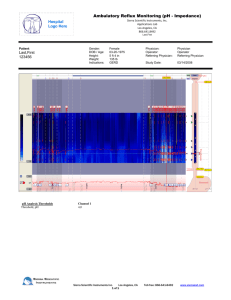Appendix 1. QUESTIONNAIRE FOR THE EVALUATION OF THE
advertisement
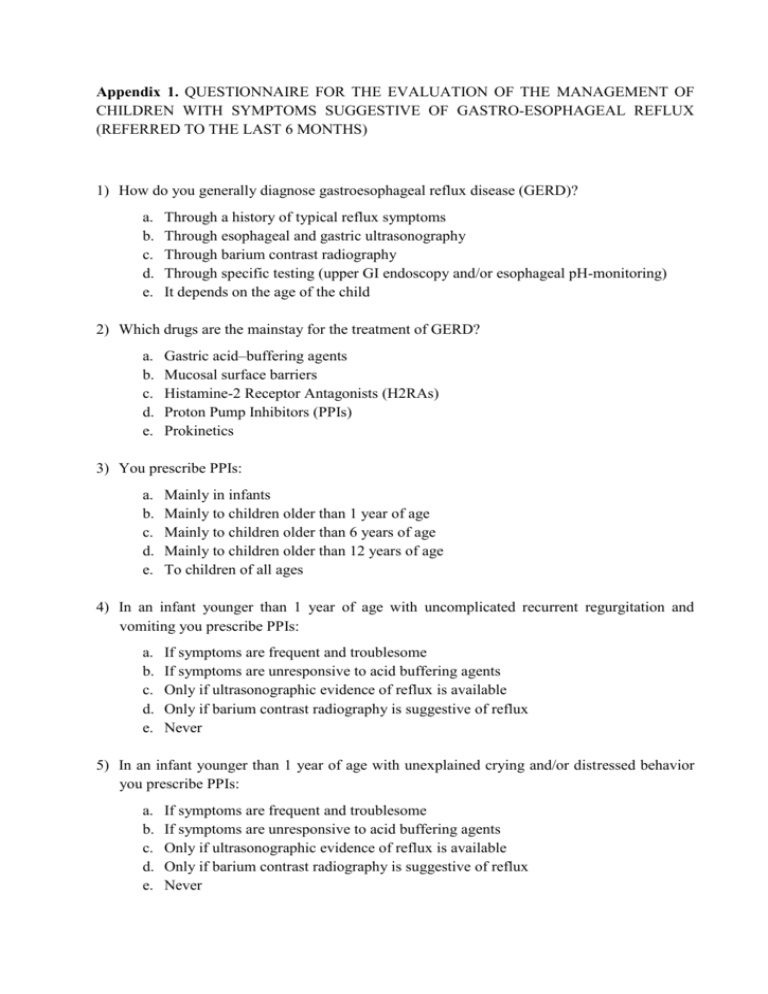
Appendix 1. QUESTIONNAIRE FOR THE EVALUATION OF THE MANAGEMENT OF CHILDREN WITH SYMPTOMS SUGGESTIVE OF GASTRO-ESOPHAGEAL REFLUX (REFERRED TO THE LAST 6 MONTHS) 1) How do you generally diagnose gastroesophageal reflux disease (GERD)? a. b. c. d. e. Through a history of typical reflux symptoms Through esophageal and gastric ultrasonography Through barium contrast radiography Through specific testing (upper GI endoscopy and/or esophageal pH-monitoring) It depends on the age of the child 2) Which drugs are the mainstay for the treatment of GERD? a. b. c. d. e. Gastric acid–buffering agents Mucosal surface barriers Histamine-2 Receptor Antagonists (H2RAs) Proton Pump Inhibitors (PPIs) Prokinetics 3) You prescribe PPIs: a. b. c. d. e. Mainly in infants Mainly to children older than 1 year of age Mainly to children older than 6 years of age Mainly to children older than 12 years of age To children of all ages 4) In an infant younger than 1 year of age with uncomplicated recurrent regurgitation and vomiting you prescribe PPIs: a. b. c. d. e. If symptoms are frequent and troublesome If symptoms are unresponsive to acid buffering agents Only if ultrasonographic evidence of reflux is available Only if barium contrast radiography is suggestive of reflux Never 5) In an infant younger than 1 year of age with unexplained crying and/or distressed behavior you prescribe PPIs: a. b. c. d. e. If symptoms are frequent and troublesome If symptoms are unresponsive to acid buffering agents Only if ultrasonographic evidence of reflux is available Only if barium contrast radiography is suggestive of reflux Never 6) In a child aged 5 years with vomiting and heartburn you prescribe PPIs: a. b. c. d. e. If symptoms are frequent and troublesome If symptoms are unresponsive to acid buffering agents Only if radiographic or ultrasonographic evidence of reflux is available Only after specific testing (upper GI endoscopy and/or pH-monitoring) Never 7) In a child aged 12 years with heartburn and chest pain you prescribe PPIs: a. b. c. d. e. If symptoms are frequent and troublesome Only if symptoms are associated with vomiting Only if radiographic or ultrasonographic evidence of reflux is available Only after specific testing (upper GI endoscopy) Never 8) A 2- to 4-week PPI trial could be recommended for: a. b. c. d. e. Children of all ages with typical reflux symptoms Children of all ages with typical or atypical reflux symptoms Children older than 1 year of age with typical reflux symptoms Older children and adolescents with chronic heartburn Only adult patients 9) Which test do you perform in a child with respiratory symptoms suspected to be GERDrelated? a. b. c. d. e. Esophageal and gastric ultrasonography Barium contrast radiography Upper GI endoscopy pH (+ impedenance)-monitoring 2- to 4-week PPI trial 10) When do you think it is necessary to perform an upper GI endoscopy in children? a. b. c. d. e. Child aged 5 years with recurrent vomiting and heartburn Child aged 5 years with respiratory symptoms suspected to be GERD-related Child aged 12 years with recurrent vomiting and heartburn Children of all ages with suggestive reflux symptoms Children of all ages with radiographic or ultrasonographic evidence of reflux 11) Which of these is the most frequent adverse event of PPI therapy in infants? a. b. c. d. e. Hip fractures Hematemesis Lower respiratory tract infections Interstitial nephritis Failure to thrive 12) How do you generally discontinue PPI therapy? a. b. c. d. e. After blood testing After ultrasonographic testing After radiographic testing Abrupt discontuation Gradual weaning 13) Can you tell us how many patients have you treated with PPIs during the last 6 months? __________ out of __________ total patients. 14) Can you tell us how many PPIs prescriptions have you made during the last 6 months? __________ out of __________ total prescriptions.
